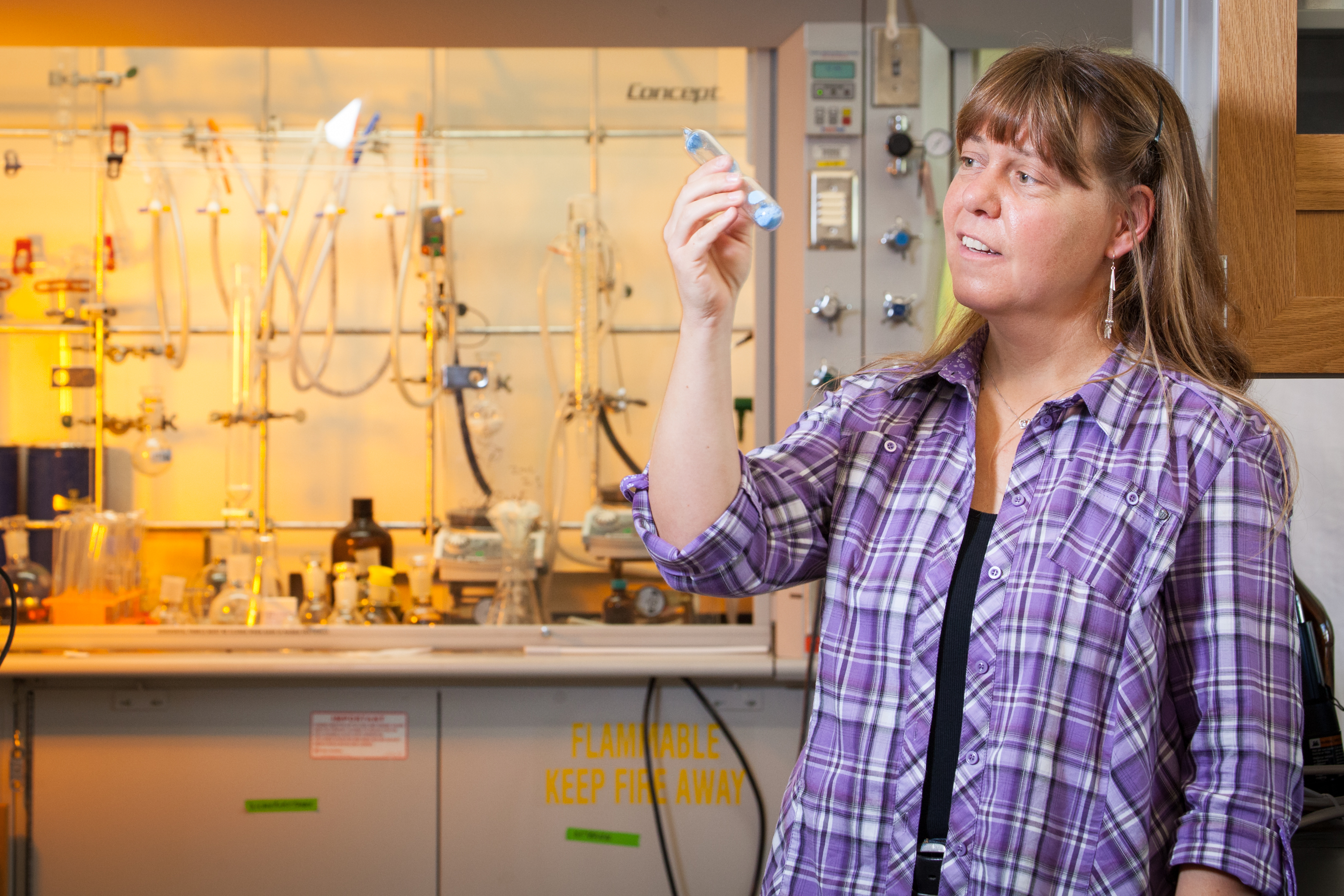
FAYETTEVILLE, Ark. – The Arkansas Biosciences Institute has awarded University of Arkansas researchers grants for 39 science and technology research projects for fiscal year 2016.
The institute is a partnership of scientists at five research institutions across Arkansas, including the state’s flagship university in Fayetteville, with a focus on supporting biomedical research and agricultural research with medical implications.
The fiscal 2016 grants at the U of A totaled $1.58 million, said Roger Koeppe II, Distinguished Professor of chemistry and biochemistry, who represents the flagship on the institute’s scientific coordinating committee.
Institute-supported investigators explore many different body and cellular processes in their search for answers to challenging basic science- and health-related questions.
Koeppe said the institute chooses projects that are both innovative and may need preliminary results in order to compete for research funding on a national level, from agencies such as the National Institutes of Health or the National Science Foundation.
“For each dollar of Arkansas Biosciences Institute funding, our faculty have been able to generate $3 to $4 of external funding,” Koeppe said. “These grants provide a solid return-on-investment for the University of Arkansas.”
The committee also considers funding for shared equipment, and bridge funding. Multiple researchers may request funding for major instrumentation that they will share, Koeppe said.
This year, Michael Lehmann, an associate professor of biological sciences, was awarded an Arkansas Biosciences grant for $56,257 to study a potential drug target in the fight against obesity. His project is using fruit fly genetics to shed light on how lipin, a protein involved in fat and energy metabolism, is normally regulated and what the consequences are when the protein loses activity.
Since coming to the university in 2002, Lehmann has received more than $1.38 million in funding from the National Institutes of Health, the National Science Foundation and the Arkansas Biosciences Institute.
Susanne Striegler, a professor of chemistry and biochemistry, was awarded an Arkansas Biosciences Institute grant for $50,913 to evaluate the inhibiting effect of chemical compounds she synthesized in her lab on certain enzymes, to develop new tools for the diagnosis of Alzheimer's disease and the early detection of cancer.
Striegler has received nearly $700,000 in funding from the National Science Foundation and Arkansas Biosciences Institute since coming to the university in 2012.
U of A researchers awarded Arkansas Biosciences grants for fiscal 2016:
- Paul D. Adams, associate professor, chemistry and biochemistry
- Andrew J. Alverson, assistant professor, biological sciences
- Tameka Bailey, visiting assistant professor, biological sciences
- Kartik Balachandran, assistant professor, biomedical engineering
- Bob Beitle, professor, chemical engineering
- Jingyi Chen, assistant professor, chemistry and biochemistry
- Michael E. Douglas, professor, biological sciences
- Tim Evans, assistant professor, biological sciences
- Ingrid Fritsch, professor, chemistry and biochemistry
- Nicholas Greene, assistant professor, health, human performance and recreation
- Bart Hammig, associate professor, health, human performance and recreation
- Ralph L. Henry, Distinguished Professor, biological sciences
- Joseph Herzog, visiting assistant professor, physics
- Christa Hestekin, associate professor, chemical engineering
- Jamie A. Hestekin, associate professor, chemical engineering
- Colin D. Heyes, associate professor, chemistry and biochemistry
- Michael Lehmann, associate professor, biological sciences
- Daniel J. Lessner, associate professor, biological sciences
- Jeffrey A. Lewis, assistant professor, biological sciences
- Jiali Li, associate professor, physics
- Matt McIntosh, professor, chemistry and biochemistry
- Timothy Muldoon, assistant professor, biological engineering
- Ines Pinto, associate professor, biological sciences
- Narasimhan Rajaram, assistant professor, biomedical engineering
- Joshua Sakon, associate professor, chemistry and biochemistry
- Greg Salamo, Distinguished Professor, physics
- Woodrow L. Shew, assistant professor, physics
- Wei Shi, assistant professor, chemistry and biochemistry
- Julie A. Stenken, professor, chemistry and biochemistry
- Susanne Striegler, professor, chemistry and biochemistry
- Suresh Thallapuranam, professor, chemistry and biochemistry
- Christian K. Tipsmark, assistant professor, biological sciences
- Feng Wang, associate professor, chemistry and biochemistry
- Tyrone A. Washington, assistant professor, health, human performance and recreation
- Jeffrey C. Wolchok, assistant professor, biomedical engineering
- Charles L. Wilkins, Distinguished Professor, chemistry and biochemistry
- David A. Zaharoff, associate professor, biomedical engineering
- Nan Zheng, associate professor, chemistry and biochemistry
- Min Zou, professor, mechanical engineering
The vision for the Arkansas Biosciences Institute emerged during a statewide planning process for use of the state’s share of the 1998 nationwide tobacco settlement. Health care leaders across the state spoke out in favor of dedicating a portion of the tobacco settlement funds to innovative research that could improve health and help reduce or prevent smoking-related illnesses.
Arkansas voters endorsed the proposed Tobacco Settlement Proceeds Act of 2000, and the Arkansas Legislature enacted the provisions of that proposal as Acts 1569 through 1580 of 2001.
Part of that legislation established the Arkansas Biosciences Institute as a consortium of five research institutions: the University of Arkansas at Fayetteville, the University of Arkansas System’s statewide Division of Agriculture, the University of Arkansas for Medical Sciences, Arkansas State University and Arkansas Children’s Hospital.
Topics
Contacts
Roger Koeppe II, Distinguished Professor
Department of Chemistry and Biochemistry
479-575-4976,
Chris Branam, research communications writer/editor
University Relations
479-575-4737,